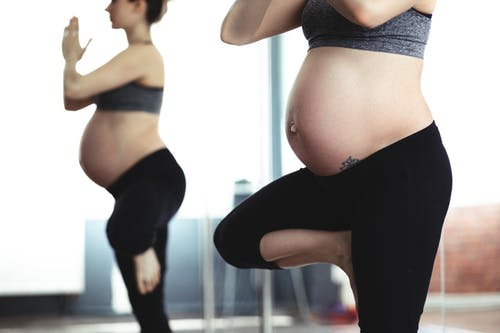Are you pregnant, or maybe you know someone that is and are suffering from digestive issues. Pregnancy changes your body in a number of ways; most people do not realise how impaired the digestive system can become. Below are the most common digestive problems women experience during pregnancy.
During the first trimester, around 80% of women suffer from nausea and vomiting. During this period it can be difficult to eat large meals, and strong smells and tastes can become unbearable. Some women can also find some vegetables and acidic foods harder to digest. This happens because the pregnancy hormones interact with other hormones which control different body systems, especially the ones involved with blood sugar regulation. This results in nausea and vomiting. Reducing intake of the refined sugar found in sweets, cake, biscuits, and sugary drinks will help reduce the symptoms of nausea and vomiting, and consuming complex carbohydrates such as whole-wheat and whole-grain products and brown rice dishes can help with symptoms.

Heartburn, indigestion and acid reflux, is very common during pregnancy, usually happening between the second and third trimesters. Heartburn is described by a burning sensation that can be felt from the centre of the chest to the lower part of the throat. During pregnancy, the hormone progesterone relaxes the valve that separates the oesophagus from the stomach, letting gastric acids to come back up, causing a burning sensation. In late pregnancy, a portion of the stomach may even be pushed all the way up into the chest, producing a hiatal hernia. To prevent heartburn, eating smaller meals without fluid allow stomach acid levels to stay at a consistent level. Avoiding spicy, fatty and greasy foods, as well as chocolate and caffeine is advised. After eating, sit upright instead of lying down to limit the acid coming up, and when you do lie down, keep your head elevated.
Constipation is a digestive disturbance resulting in abdominal discomfort, hard stools, and infrequent bowel movements. Approximately half of all pregnant women experience constipation. It is often caused by a lack of fibre in your diet and stress. During pregnancy, constipation occurs due to pressure expanding the uterus which impacts the intestines. Pregnancy hormones relax the intestinal muscle, causing food and waste to move more slowly through your digestive system. Hydration can help keep bowel movements soft, and adding fibre to your diet, including whole grains, fruits, vegetables, and beans can also keep things moving in the gastrointestinal tract. Gentle exercises and movement can help maintain regular bowel movements.
Flatulence is caused by the hormones relaxin and progesterone which relax the muscles in the gastrointestinal (GI) tract, causing food to travel down more slowly and excess gas to build up more quickly. To keep gas at bay it is best to avoid or reduce carbohydrate drinks, avoid fatty fried foods, eat smaller meals throughout the day and eat slowly and to chew food thoroughly.
Haemorrhoids are dilated blood vessels around the inside or projecting from, the anus. Their constriction by the anal muscles and sensitivity to the acidic environment leads to a feeling of discomfort in mild episodes and pain in more severe cases. During pregnancy, the hormonal softening of the tissues around the anus increases the risk of developing haemorrhoids. The pressure of the baby’s head on the blood vessels is also a factor, as is constipation. A healthcare professional can prescribe creams for relieving discomfort.
Do not suffer, enjoy your pregnancy and speak to one of our Qualified Nutritinionists or Functional Medicine Practitioners that can help you with advice on what you can do to prevent suffering with the conditions above and what nutrients can help you during your pregnancy, for a healthy happy mum and baby!

If this resonates with you then…
This article was written by our team of specialist therapists at Perfect Balance Clinic. If you would like more specific advice about how our team can help you with this condition or symptoms you may be having, please complete the contact form below and one of the team will get back to you shortly.







